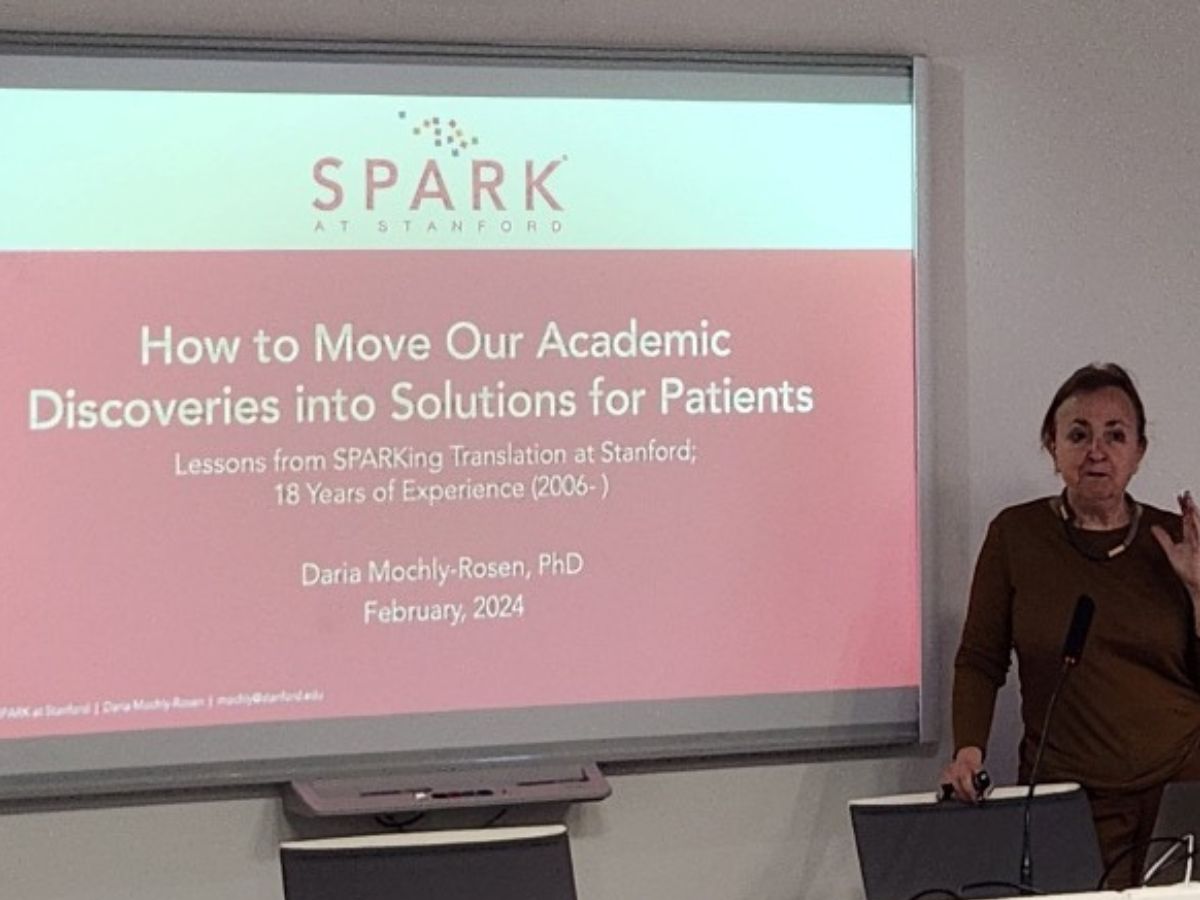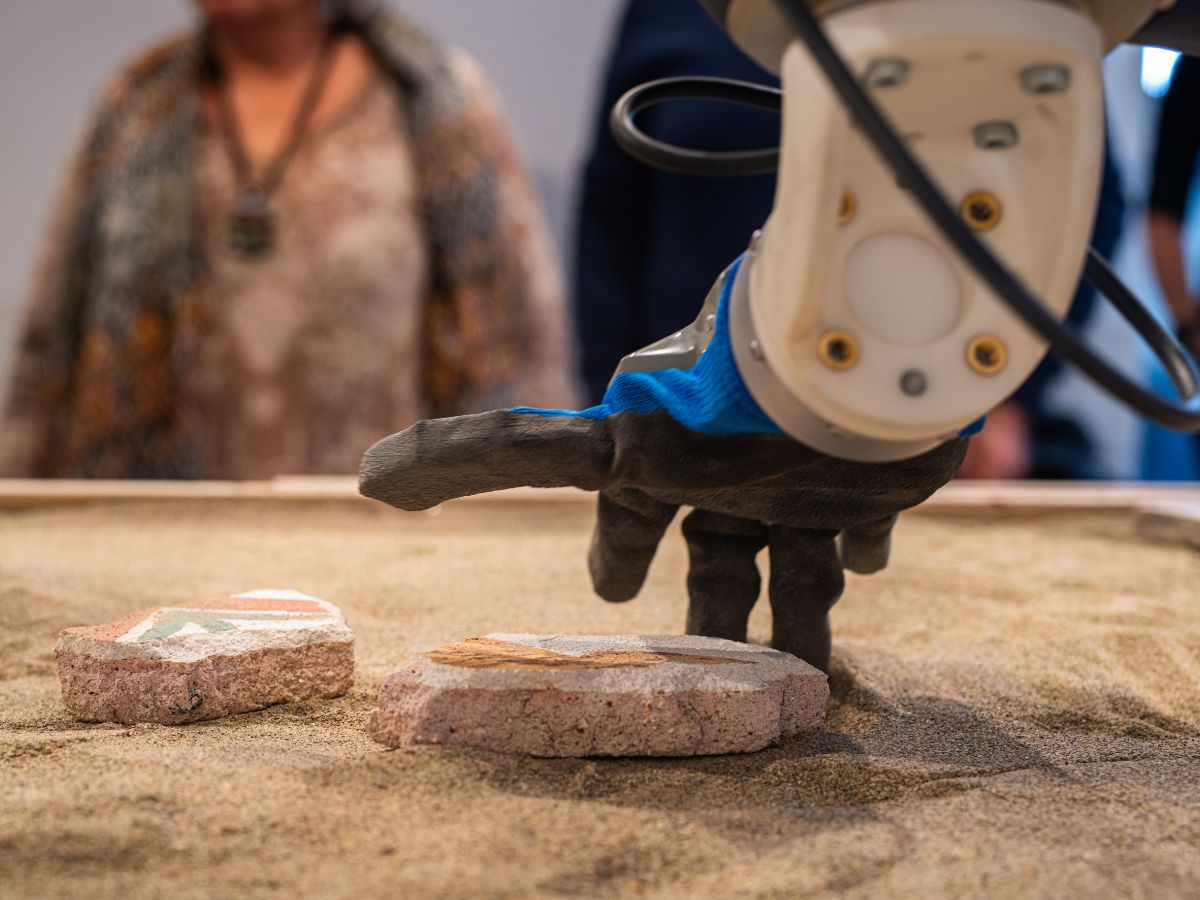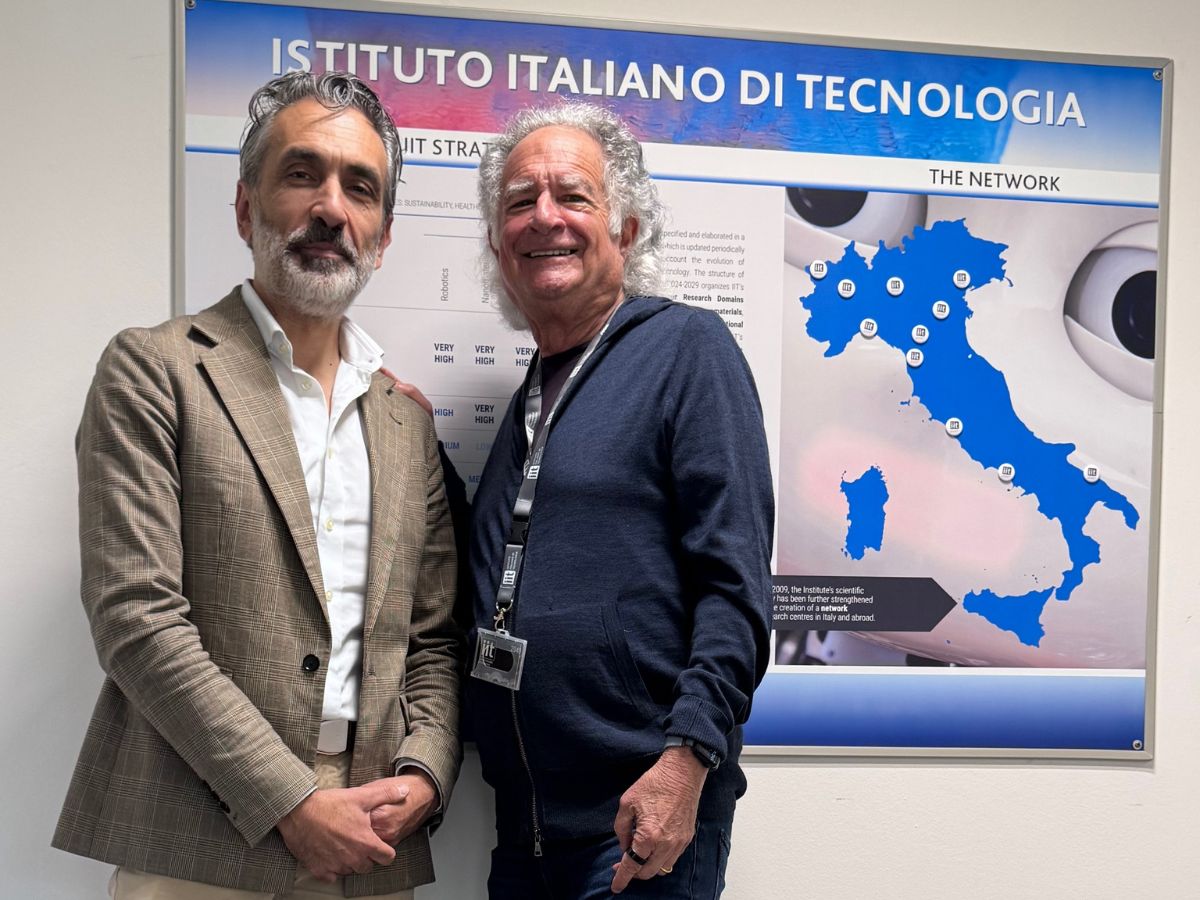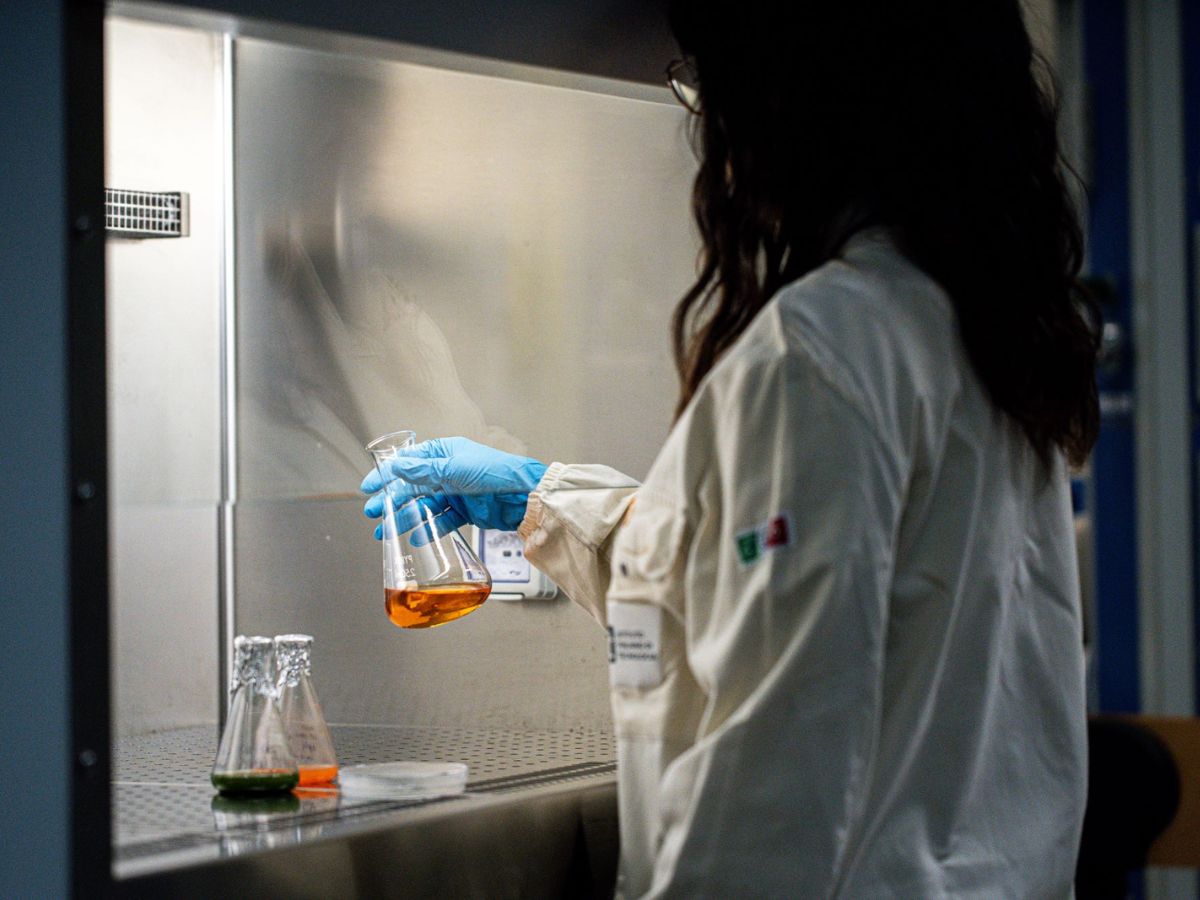From Stanford to IIT, how to translate biomedical research discoveries into new treatments
In 2006, Stanford University launched the SPARK program to bridge the gap between academic research and the market. The aim is to translate the latest scientific and technologic discoveries into accessible tools to impact patients’ health. The features of this initiative were outlined by Daria Mochly Rosen, who was hosted at IIT in Genoa on February 26th by Paolo Decuzzi, Principal Investigator of the “Nanotechnology for Precision Medicine” group. Rosen is a professor at the Medicine School of Stanford University, and she is the creator, founder, and president of SPARK program.
The chairman of the event was Lorenzo De Michieli, head of the Technology Transfer unit at IIT, and Rosen answered to his questions about her experience both as researcher and entrepreneur. Through weekly meetings, the SPARK program fosters dialogue between scientists and volunteer experts from the healthcare sector and pharmaceutical companies, designing a shared path toward translational medicine. Therefore, researchers start to adopt cost-effective, valid, and innovative approaches to promote the implementation of their projects. Furthermore, young researchers are trained for potential careers in the industry. On the other hand, entrepreneurs have the chance to look closer at the scientific process and to identify the most promising technologies.
The SPARK philosophy stands on the importance of sharing opinions and ideas without a hierarchical structure among members. All events take place within the university campus to facilitate the spreading of ideas and acquired knowledge, so that even more students and researchers can get the benefits of this initiative.
Projects that have been selected within the SPARK initiative receive a support of $50,000 per year for two years, to boost translation of academic discoveries into therapeutic solutions addressing unmet needs. So far, 60% of the funded projects have been licensed to existing pharma or start-up and entered a clinical trial, setting out SPARK as successful. Currently, other 60 academic institutions throughout the world have adopted this model, joining the SPARK Global project.
IIT participates in the SPARK program through the involvement of Decuzzi. Paolo Decuzzi, currently holding the position of Visiting Professor at Stanford University, received funds to commercially develop the nanodevice microMESH to treat pediatric brain tumors. Developed in Decuzzi’s laboratory in Genoa, microMESH is a micrometric-sized network that surrounds the tumor within the brain tissue and enables the local release of one or more drugs, increasing therapeutic efficacy and minimizing the side effects of traditional chemotherapies.
After Mochly’s lecture, the stage was taken by CEOs and researchers working in some of the most successful IIT healthcare startups, such as Novavido Srl, FORESEE Byosystems Srl, Corticale Srl, IAMA Therapeutics. Their contributions underlined that IIT has been aligned with the SPARK objectives since its birth.
“I see a tremendous potential for IIT to act as a bridge between research and market in Europe”, commented Rosen, encouraging start-up leaders and principal investigators to pursue these goals: emphasize strengths, address weakness, and learn the value of failure.
*Irene Guerriero è PhD Student di IIT, e sta svolgendo un periodo di formazione all’Ufficio stampa estero di IIT grazie a un’iniziativa di placement interno.





